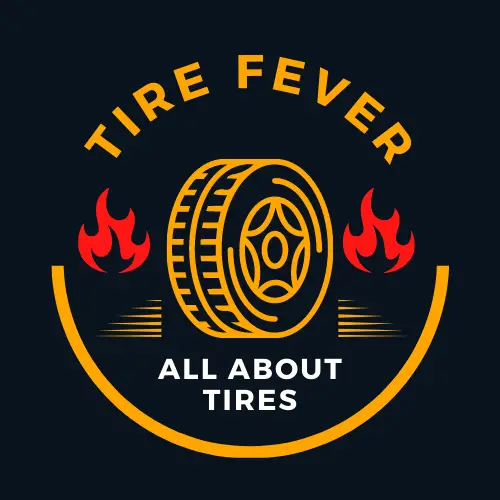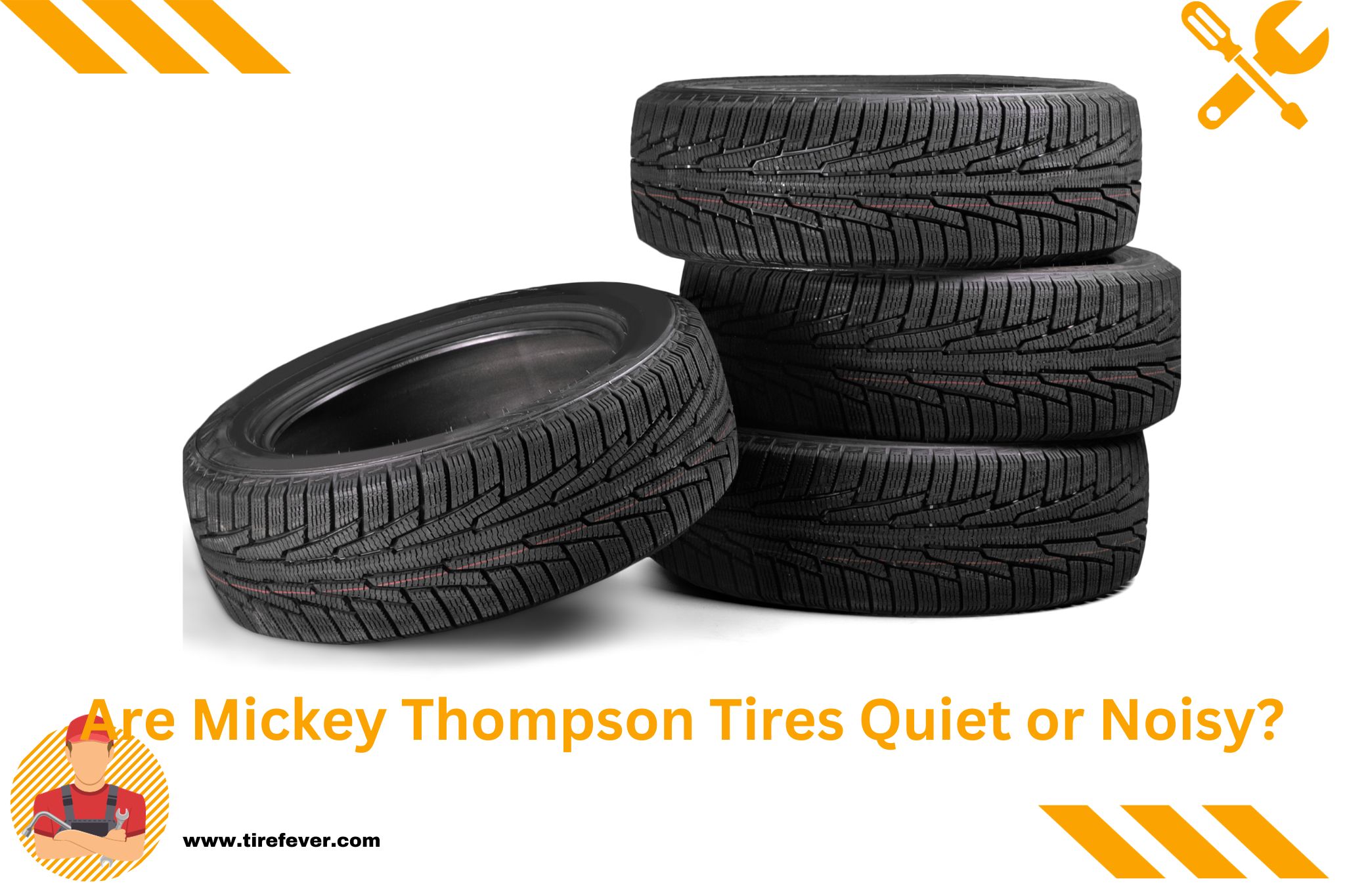Are Mickey Thompson Tires the quiet companions you’ve been searching for on your road trips, or will they leave you longing for peace and quiet? That’s the question many drivers find themselves pondering when considering these popular tires. With their reputation for exceptional performance and rugged durability, it’s only natural to wonder if they come at the cost of a peaceful ride. In this blog post, we’ll explore the noise levels of Mickey Thompson Tires, providing you with the information you need to make an informed decision for your next set of wheels.
When it comes to tires, noise can be a significant factor in determining overall driving comfort. No one wants to endure a constant barrage of loud, distracting sounds while cruising down the highway or navigating city streets. That’s why it’s crucial to understand how different tire brands and models perform in terms of noise levels. In the case of Mickey Thompson Tires, the answer may not be as straightforward as you might think. So, let’s dive into the world of tire acoustics and discover whether Mickey Thompson Tires are the silent road companions you’ve been dreaming of.
Are Mickey Thompson Tires Quiet or Noisy?
When it comes to buying new tires a lot of factors come into play. One big one is tire noise. This is a crucial aspect that most drivers can’t ignore as they embark on their tire-searching journey.
So, are Mickey Thompson Tires quiet or noisy? Mickey Thompson Tires are generally not known for being quiet. They are designed for high performance and off-road use, which often results in increased road noise.
In a hurry here are our top 6 tire recommendations:
- Best Budget Tires
- Best Mid-Range Tires
- Best All-Season Tires
- Best Summer Tires
- Best Winter Tires
- Best Performance Tires
Understanding Tire Noise
Tire noise refers to the sound produced by the tires as they roll on the road surface. It is an important aspect of vehicle performance and can significantly impact the comfort and overall driving experience.
Understanding tire noise involves recognizing the different types of noises and their causes. One common type of tire noise is known as tread pattern noise, which is generated by the interaction between the tire tread and the road surface.
This noise can vary depending on the design and depth of the tire tread, as well as the road conditions. Another type of tire noise is known as tire whine, which is typically caused by uneven wear or misalignment of the tires. This noise can be more noticeable at higher speeds and may indicate the need for tire rotation or alignment.
To understand tire noise, it is important to consider the factors that contribute to its generation. One such factor is tire design, including the tread pattern and the materials used. Different tread patterns can produce varying levels of noise, with more aggressive patterns generally generating more noise.
Road conditions also play a significant role in tire noise, as rough or uneven surfaces can amplify the sound. Finally, tire maintenance and proper inflation are crucial in reducing tire noise. Underinflated or overinflated tires can lead to increased noise levels, as well as uneven wear, which can further contribute to tire noise.
Also Read: goodyear assurance vs michelin premier
Factors Influencing Tire Noise
There are a number of factors influencing tire noise. These include:
Tread pattern:
The design and arrangement of the tread pattern on a tire greatly affects the amount of noise it produces. Tires with aggressive tread patterns, such as those found on off-road or winter tires, tend to generate more noise compared to tires with smoother and less aggressive tread patterns.
Tire compound:
The type of rubber compound used in a tire can also impact its noise level. Softer rubber compounds, often used in high-performance tires, tend to generate more noise as they grip the road surface more aggressively, resulting in increased friction and noise.
On the other hand, harder rubber compounds, commonly used in all-season or touring tires, can provide a quieter ride.
Tire size:
The size of the tire, particularly the width and aspect ratio, can influence the amount of noise it produces. Wider tires generally produce more noise compared to narrower ones, as the wider contact patch creates more friction and consequently more noise.
Additionally, tires with a lower aspect ratio (shorter sidewalls) may generate more noise due to reduced cushioning and increased rigidity.
Tire age and wear:
As tires age and wear down, they tend to produce more noise. This is because the tread becomes shallower, reducing the tire’s ability to absorb road vibrations and noise. Additionally, worn-out tires may develop irregular wear patterns, leading to increased noise levels.
Other factors influencing tire noise include road surface conditions, vehicle speed, and air pressure in the tires. It’s important to consider these factors when selecting tires, as noise levels can greatly impact the overall comfort and driving experience.
You May Also Like: Mickey Thompson Tire Chunking
Are Mickey Thompson Tires More Quiet Than Other Brands?
Mickey Thompson tires are not necessarily more quiet than other brands as noise levels can vary depending on the specific tire model and its design. Factors such as tread pattern, tire size, and road conditions can also impact the noise level of the tires. However, some Mickey Thompson tire models may offer features or technologies aimed at reducing noise levels for a quieter ride.
Are Mickey Thompson Tires More Noisy Than Other Brands?
No, Mickey Thompson tires are not necessarily more noisy than other brands. The noise level of a tire depends on various factors such as tread pattern, tire design, and road conditions. While some Mickey Thompson tires may produce more noise due to their aggressive tread patterns designed for off-road use, there are also quieter options available in their product range.
The noise level of a tire is primarily determined by its tread pattern and design. Tires with more aggressive tread patterns, such as those found on off-road or all-terrain tires, tend to produce more noise compared to tires with less aggressive patterns. However, it is important to note that not all Mickey Thompson tires have aggressive tread patterns, and the brand offers a range of options suitable for different types of vehicles and road conditions. Therefore, it is recommended to consider the specific tire model and its intended use when evaluating the noise level of Mickey Thompson tires compared to other brands.
What Mickey Thompson Tires are the Quietest?
When it comes to finding quiet Mickey Thompson tires, there are a few options worth considering. Here are some of the quietest Mickey Thompson tires available:
- Mickey Thompson Baja ATZ P3: Offers a quiet and smooth ride on both highways and off-road terrains.
- Mickey Thompson Baja MTZ P3: Known for its aggressive tread design, it still manages to provide a relatively quiet ride.
- Mickey Thompson Deegan 38: Combines off-road performance with reduced road noise for a quieter driving experience.
- Mickey Thompson Baja Boss: Designed for off-road enthusiasts, it also offers a quieter ride compared to other aggressive tires.
These tires provide a balance between performance and reduced noise levels, making them suitable for various driving conditions.
What Mickey Thompson Tires are the Noisiest?
Mickey Thompson Tires are known for their high-performance capabilities, but some models tend to be noisier than others. Here are the top three noisiest Mickey Thompson Tires:
- Mickey Thompson Baja MTZ P3: This aggressive mud-terrain tire provides excellent off-road traction but can be quite loud on paved roads.
- Mickey Thompson Baja ATZ P3: While offering a balance between off-road capability and on-road comfort, this all-terrain tire can produce noticeable noise at higher speeds.
- Mickey Thompson Deegan 38: This tire is designed for off-road enthusiasts, but its aggressive tread pattern may result in increased road noise compared to other models.
Please note that noise levels can vary depending on factors such as tire size, vehicle type, and road conditions.
Mickey Thompson Tires Aproach to Noise Reduction
Mickey Thompson Tires’ approach to noise reduction focuses on delivering a quieter driving experience without compromising performance. Here are some key points about their approach:
- Advanced tread patterns designed to minimize road noise
- Incorporation of noise-canceling technology to reduce tire noise
- Use of specialized rubber compounds to absorb vibrations and reduce noise
- Extensive testing and engineering to ensure optimal noise reduction without sacrificing traction or handling
- Continuous innovation and refinement to stay at the forefront of noise reduction technology
- Commitment to providing a comfortable and quiet ride for drivers without compromising on tire performance
Mickey Thompson Tires’ dedication to noise reduction showcases their commitment to enhancing the overall driving experience for their customers.
Related: Are Nokian Tires Quiet or Noisy?
Conclusion
In conclusion, Mickey Thompson Tires are generally not known for being quiet due to their high-performance and off-road design. However, noise levels can vary depending on the specific tire model and its features. The brand offers options with advanced tread patterns and technologies aimed at reducing noise for a quieter ride. It is recommended to consider the specific tire model and its intended use when evaluating the noise level of Mickey Thompson tires compared to other brands.
This post contains affiliate links. Read the full disclosure here.


I am passionate about all things automotive and have a deep understanding of the topic. As a mechanic, I use my free time to share knowledge of everyday challenges that any car owner can experience – helping you make informed decisions about tires.

